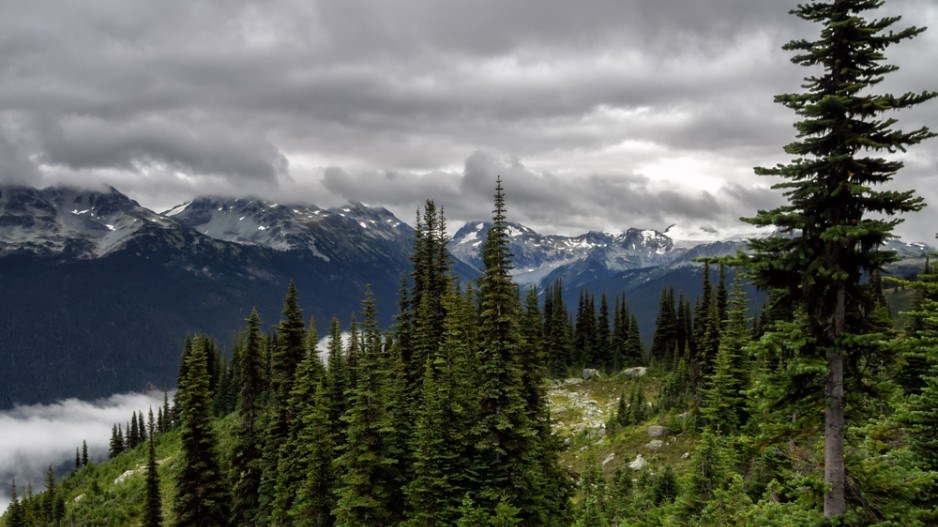The British Columbia Civil Liberties Association (BCCLA) Monday released thousands of pages of heavily-redacted documents from the Canadian Security Intelligence Service (CSIS) suggesting the spy agency illegally spied on Indigenous groups and environmentalists opposed to the Enbridge Northern Gateway Pipeline project.
And, the association and other groups assert, that information was illegally shared with the oil industry and the National Energy Board. They’re calling it corporate welfare.
“The Canadian government deployed people to spy on ordinary people,” said Alexanda Woodsworth, spokeswoman for Dogwood BC, one of the surveilled groups. She called CSIS actions “a shocking betrayal” of peoples’ trust in their government.
“Our tax dollars are being used to spy on people on behalf of the fossil fuel companies,” she said.
Association lawyer Meghan McDermott said it is not known whether the decision to monitor the groups came from within CSIS or from higher in the government.
McDermott denounced the state surveillance, saying it puts a chill on speaking out against issues, signing petitions and engaging in peaceful protest.
“This all amounts to a shocking violation of freedom of expression,” she said.
It was a BCCLA complaint filed in February 2014 alleging CSIS was illegally monitoring activities of monitoring Dogwood Initiative, ForestEthics (now Stand.Earth), Sierra Club BC, Leadnow.ca and the Indigenous #Idlenomore movement that led to Monday’s disclosures.
CSIS spokesman John Townsend said CSIS investigates activities falling within the definition of threats to the security of Canada and reports on them to the Government of Canada.
He said the definition of threats in the agency’s governing law “ specifically excludes lawful protest and dissent.”
Townsend said the Security Intelligence review Committee (SIRC) in 2017 investigated and dismissed the complaint, finding that CSIS had not acted outside of its mandate and that its activities were reasonable and necessary.
“As the judicial review of SIRC’s decision of this complaint is currently before the Court, I’m not able to provide further comment at this time,” Townsend added.
However, the association said the newly released documents validate the original complaint. They can be read here: https://bccla.org/secret-spy-hearings/
“People can look at these documents and decide for themselves,” McDermott said. “If CSIS claims it wasn’t tracking conservation groups in B.C., why did they collect thousands of pages of files relating to groups who engaged in peaceful advocacy and protest?”
She said the association intends to appeal the SIRC decision to the Federal Court of Canada.
“The documents show there was surveillance going on,” McDermott said. “There was no proximity to violence or any security threat.”
Association Josh Paterson was one of those who testified at the hearings. Under a SIRC order, he is forever gagged from saying what he said, heard or saw at the hearings - as are other participants.
He said it was CSIS which did the redaction work.
A SIRC confidentiality order prevented the association from making a decision and documents regarding the complaint public, but has been partially lifted.
Sierra Club BC campaigns director Caitlyn Vernon said illegal spying on those concerned about protecting the environment is an attack on Canadians’ freedom.
“Why should speaking up for clean drinking water and air free from wildfire smoke make us enemies of the state?” Vernon said. “We won’t stand for it.”
International anti-fossil fuel group 350.org spokesman Clayton Thomas-Müller said such surveillance criminalizes dissent, behaviour he characterized as repression.
“The state is surveiling and criminalizing Indigenous peoples who are acting within their right to exercise jurisdiction over their lands. This is an abuse of democracy and the nation-to-nation relationship between Indigenous nations and the state. It is clearly about providing a right-of-way for the mining and energy sector.”
Biggs said one of the revelations was that a ForestEthics meeting in a Kelowna church basement was attended by someone from either CSIS or the RCMP.
And, he fears those who have opposed the Trans Mountain pipeline twinning from Edmonton to Burnaby have also been watched using “intimidation tactics by the state.”
Neither the Canadian Association of Petroleum Producers, the prime minister’s office or Northern Gateway proponent Enbridge have responded to requests for comment.
— Jeremy Hainsworth, Glacier Media



